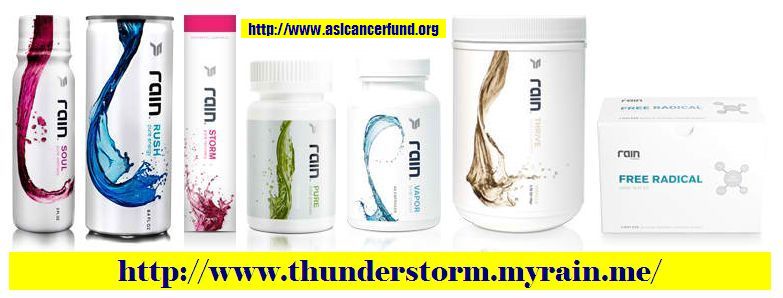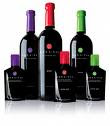An APPLE (well, maybe a few APPLES) a day really does keep the DOCTOR away and at bay...but only if the Apple is eaten with the SKIN ON!!! Because quercetin, a flavonoid and phytonutrient, known to be a powerful antioxidant with antihistamine and anti-inflammatory properties, is concentrated in the skin of apples.
According to NaturalNews, Asthma, cystic fibrosis (CF) and chronic obstructive pulmonary disease (COPD) are serious and even life-threatening conditions. However, these health problems share something with a usually minor infection -- the common cold. The connection? Rhinovirus (RV), a single-stranded RNA virus from the picornaviridae family, causes the majority of colds and RV is also known to trigger exacerbations of CF, asthma and COPD.
But now University of Michigan at Ann Arbor scientists have found that a natural substance, the flavonoid quercetin, puts the brakes on the ability of RV to replicate. It also fights inflammation. According to their research just presented at the American Thoracic Society (ATS) 2010 International Conference held in New Orleans, quercetin could be a treatment for rhinovirus-caused infections and could be particularly beneficial for people with serious underlying chronic lung diseases.
That's great news not just for people looking for a possible cure for the common cold but especially for those suffering from conditions like COPD and CF that rob them of the ability to breathe. For example, COPD (which includes emphysema and chronic obstructive bronchitis) causes coughing, wheezing, shortness of breath, chest tightness, and other symptoms. According the National Heart, Lung and Blood Institute, COPD is a major cause of disability and the fourth leading cause of death in the United States. CF is an inherited chronic disease that affects the lungs and digestive system of about 30,000 children and adults in the US. It causes the body to produce a thick, sticky mucus that clogs the lungs and can lead to life-threatening lung infections.
For their study, the University of Michigan research team decided to test quercetin on cells infected with RV. A phytochemical found in the skins of apples, red onions and other foods, quercetin is known to be a powerful antioxidant with antihistamine and anti-inflammatory properties. So the scientists hypothesized that quercetin might reduce the ability of RV to spark an inflammatory response. That's important because inflammation causes oxidative stress which can disrupt the function of epithelial cells (cells that line cavities and structures) inside airways, negatively impacting the ability to breathe.
Their lab experiments with RV infected cells showed that the researchers were right. The results suggested that quercetin actually inhibited the ability of the virus to replicate. The flavonoid also appeared to reduce the RV-triggered immune system response that can cause cytokines (proteins that are secreted by specific cells of the immune system) to induce excess inflammation. "Therefore, quercetin may be beneficial in the treatment of viral infections, particularly in patients with underlying chronic lung disease," the researchers stated.
As NaturalNews has previously reported, evidence has been accumulating over the past several years that shows phytonutrients such as quercetin are powerful protectors of health (http://www.naturalnews.com/027409_foods_meals_fruits.html). For example, the flavonoid may protect brain cells and help prevent dementia (http://www.naturalnews.com/002509.html). A study by University of South Carolina research found quercetin can boost exercise endurance, too (http://www.naturalnews.com/026591_quercetin_health_placebo.html).
NaturalNews also reported that Quercetin, a plant-derived flavonoid, is commonly taken as a nutritional supplement. Quercetin has been linked to supporting the immune system, clearing excess congestion, supporting bone health, and may aid in fighting mild allergy problems. It is also used in some weight control programs. Quercetin, like other flavonoids, is an antioxidant that travels throughout the body removing harmful free radicals. Studies have also shown that quercetin may also be a potential solution to cardiovascular disease, a leading cause of death in the United States.
This idea came from a recent study conducted to study the effects of quercetin on overweight people with high cardiovascular risk. This plant-derived flavonoid was tested on a group of ninety-three overweight and obese subjects ranging from ages twenty-five to sixty-five. Each individual was given only 150mg of quercetin per day, while regular quercetin capsules are weighted at 500mg and can be taken up to three times a day. Over the six-week trial period of taking quercetin in smaller doses, the capsule was found to lower blood pressure and significantly prevent damage to LDL cholesterol. Since only damaged LDL cholesterol causes plaque build up, quercetin was shown to prevent Cardiovascular Disease overall.
The results from this study present new-found information about the effectiveness of quercetin. Previous to this groundbreaking study, it was not known if quercetin taken by itself would have any effect on cardiovascular health. Now supplementing with quercetin can be done with confidence, as we now know individual flavonoids such as quercetin are indeed potent.
On top of preventing cardiovascular disease, quercetin is capable of saving even more lives in different ways. In 2006, 56,561 people died from hypertension in the United States. With one in three adults suffering from high blood pressure, quercetin could lower the number of deaths occurring due to hypertension.
In addition to cardiovascular disease and hypertension, quercetin along with other flavonoids has proven to protect against cancer. Flavonoids are found in fruits and vegetables and have been proven to lower the risk of cancer. Fruits and vegetables alone also contain many anti-cancer properties, including a multitude of antioxidants and other nutrients. Another means of taking in flavonoids is through quercetin supplementation. With supplementation you can get higher doses of quercetin without eating excessive amounts of foods rich in quercetin.
In another smaller study, the effects of quercetin were also shown to aid in fighting inflammatory problems such as prostatitis and rheumatoid arthritis. Patients suffering from rheumatoid arthritis are suggested to follow a diet consisting of uncooked fruits and vegetables, seeds, and nuts. Men with prostatitis have also been shown to have more relief from symptoms when taking quercetin than men taking a placebo.
NaturalNews also reported that Quercetin, a plant-derived flavonoid, is commonly taken as a nutritional supplement. Quercetin has been linked to supporting the immune system, clearing excess congestion, supporting bone health, and may aid in fighting mild allergy problems. It is also used in some weight control programs. Quercetin, like other flavonoids, is an antioxidant that travels throughout the body removing harmful free radicals. Studies have also shown that quercetin may also be a potential solution to cardiovascular disease, a leading cause of death in the United States.
This idea came from a recent study conducted to study the effects of quercetin on overweight people with high cardiovascular risk. This plant-derived flavonoid was tested on a group of ninety-three overweight and obese subjects ranging from ages twenty-five to sixty-five. Each individual was given only 150mg of quercetin per day, while regular quercetin capsules are weighted at 500mg and can be taken up to three times a day. Over the six-week trial period of taking quercetin in smaller doses, the capsule was found to lower blood pressure and significantly prevent damage to LDL cholesterol. Since only damaged LDL cholesterol causes plaque build up, quercetin was shown to prevent Cardiovascular Disease overall.
The results from this study present new-found information about the effectiveness of quercetin. Previous to this groundbreaking study, it was not known if quercetin taken by itself would have any effect on cardiovascular health. Now supplementing with quercetin can be done with confidence, as we now know individual flavonoids such as quercetin are indeed potent.
On top of preventing cardiovascular disease, quercetin is capable of saving even more lives in different ways. In 2006, 56,561 people died from hypertension in the United States. With one in three adults suffering from high blood pressure, quercetin could lower the number of deaths occurring due to hypertension.
In addition to cardiovascular disease and hypertension, quercetin along with other flavonoids has proven to protect against cancer. Flavonoids are found in fruits and vegetables and have been proven to lower the risk of cancer. Fruits and vegetables alone also contain many anti-cancer properties, including a multitude of antioxidants and other nutrients. Another means of taking in flavonoids is through quercetin supplementation. With supplementation you can get higher doses of quercetin without eating excessive amounts of foods rich in quercetin.
In another smaller study, the effects of quercetin were also shown to aid in fighting inflammatory problems such as prostatitis and rheumatoid arthritis. Patients suffering from rheumatoid arthritis are suggested to follow a diet consisting of uncooked fruits and vegetables, seeds, and nuts. Men with prostatitis have also been shown to have more relief from symptoms when taking quercetin than men taking a placebo.


.jpg)


.jpg)











.jpg)





















mun+Count-Down.jpg)




No comments:
Post a Comment